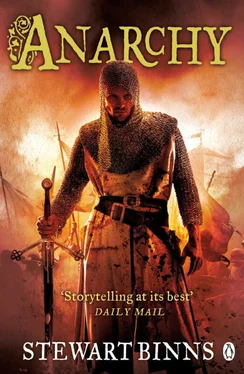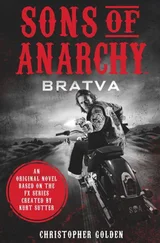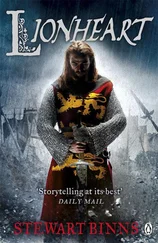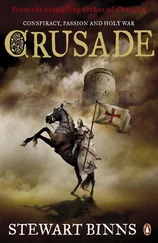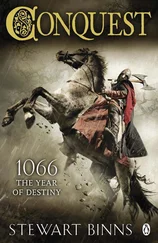There was no contact with the city, and no offer of parlay. The assault began at noon the next day. The rain continued to fall and mists rolled in from the sea; the ground was sodden, making it difficult to manoeuvre the catapults and siege towers.
We took our position, just out of range of Zadar’s archers, and watched as huge stones were hurled into the city. Most volleys were followed by the sound of crashing masonry and the terrified shrieks and cries of people hit by the missiles. The city soon responded in kind. Stones and rocks of all sizes landed all around us. Some small ones were stitched into leather bags, which exploded on impact, sending their deadly contents in all directions.
We stood our ground. When men were hit, they were carried from the field and we closed ranks to maintain our shape and discipline. Some were killed instantly, heads taken clean off, torsos mangled beyond recognition, while others lost limbs. Blood and body parts cascaded all around, splattering almost everyone in gore. We stood in stoical silence, save for the brief yelps of men who had been struck and the cries and moans of the injured.
The captains and sergeants steadied the men.
‘Stand your ground!’
‘Eyes to the front!’
‘We’ll soon be over those walls!’
Our passive vigil was suddenly interrupted by shouts going through the ranks and gestures being made towards the sea. Emerging out of the mist were countless red sails bearing down on Zadar’s shore. Within moments, huge balls of fire began to spew from the ships, their trajectory targeting the city.
‘Greek fire!’ cried the men. ‘It’s the Genoese!’
I looked at Eadmer. He looked as bewildered as I did. It was something I had never seen before. But whatever it was, it was causing mayhem inside Zadar. The heavy smoke and the glow of fires burning inside the walls grew stronger and stronger; the cries of anguish from the citizens became more and more voluble. Then came the smell – the dense acrid smell of burning pitch and thatch – mingling with the sweet smell of burning flesh. The city was an inferno.
At last the order came to attack the walls. The siege towers began to be rolled forward, and we followed in their wake. The tower squads were divided into two groups: a small group at the top of the tower, whose job it was to launch an initial attack as soon as the tower reached the walls, followed by the bulk of the men beneath, whose role it was to push the tower to the walls before climbing its stairways to join their comrades in the assault.
The ground shook as the mighty mobile barbicans trundled onwards. The defenders shot flaming arrows into the flanks of the towers, but they had been covered with hides soaked in brine and did not easily catch fire. By the time we reached the bottom of Zadar’s walls, we could hear the roar of flames and the crackle of burning buildings on the other side, as yet more fire rained down from the ships offshore. The screams intensified, the smoke grew thicker, the smells became stronger. Then the towers hit the walls and the assault platforms were lowered. Venetian marines streamed over the ramparts to confront the defenders in vicious hand-to-hand fighting.
It was time for our scaling ladder to be hurled against the wall by the sappers, and we sprinted to its bottom rung. I was about to make my leap to begin my ascent when Eadmer pushed me to one side.
‘I’m the sergeant-at-arms! Let me go first!’
He put his shield above his head and raced upwards, with me close behind and Toste and Wulfric following. I could see men falling from ladders all along the wall, some hit by rocks, some pierced by arrows. Hot oil was being poured over some of the towers; others were being drenched in burning pitch. Men were jumping off covered in flames or had their faces blistered and blackened by the oil. Now the screams of anguish from outside the walls were matching those from inside. This was war – and I was in the thick of it.
As we reached above halfway, our ladder began to bow towards the wall from the weight of men it was carrying.
‘Keep going!’ was the cry from below us.
Eadmer’s shield had several arrows in it by the time we reached the top. It had deflected several rocks, one of which smashed his shield into his shoulder, forcing him backwards on to my shield. I thought he was about to go, but he held on and, with a heave from my shoulder, I managed to help him straighten himself.
When we jumped on to the ramparts, to our immense relief our section was relatively clear of defenders, but many more reinforcements were streaming up the ramparts’ stairways. Some of our marines had already cleared a few of the stairs and were fighting down at ground level. I looked around to see if there was a quick way down.
The city was ablaze. Every building seemed to be on fire, with people running around in panic, some trying to douse the flames with pails of water, a clearly futile exercise. Women and children screamed. The heat scorched our faces – even up on the battlements – and lower down it must have been like a furnace.
Wulfric grabbed me by the shoulder and turned me round. Several defenders, looking very similar to the Paganian pirates we had fought on the Domenico , were running towards us. I rushed forward to lead our challenge, with Eadmer at my right shoulder. We slashed and cut, just as we had done so many times in training.
My instincts took over, the elixir of battle replacing the cold blood of fear. I swung wildly, bounding forward with big strides. One man got my blade through his stomach, another plummeted from the ramparts, felled by a blow from my shield, and a third was sliced at the top of his shoulder as I hacked at him. His lamellar hauberk took a lot of the impact, but blood oozed from the gash all the same.
My next opponent began to back away, colliding with his comrades behind him, who stiffened his resolve. They stood firm as I moved forward. But as I raised my sword, a huge ball of fire hit the ramparts beneath their feet and exploded, consuming them in flames. Two men seemed to disappear, incinerated before my eyes. Two more were thrown over the wall into our oncoming army, and several more fell back into the city. The heat was intense as I stepped back and covered my eyes. When I looked back to the place where, moments earlier, several men had been standing on the sturdy wooden ramparts, there was just an empty space with the remnants of charred and burning material scattered over the ground below.
The others were at my side, and I could feel them holding me. I looked at them and could see the concern on their faces.
Eadmer shouted at the men, ‘Get water!’ before helping me to the ground.
My face started to sting and then the feeling escalated into pain. I reached towards my face, but Eadmer grabbed my hand.
‘No, your face is burned.’
The battle noises were subsiding; the city would soon be under the Doge’s control.
‘Hal, lean back.’
Wulfric and Toste had returned with water. Eadmer took off my helmet, pushed me backwards and began pouring water on to my face.
‘You’re lucky. You have lost your eyebrows and most of your moustache, but your helmet and ventail protected most of your face. Your lips are singed and your cheeks look like baked apples, but you’ll be fine in a couple of weeks. Not a pretty sight for the girls, though – you might need to find an old hag who’s not so fussy for a while.’
I tried to smile, but it was painful. The rain that had persisted all day was still falling, and every drop bit into my swollen face. Eadmer looked to Wulfric and Toste.
‘See if you can find some cloth. We must cover his face to stop any infection. Be careful down there – the fight’s not over yet.’
I looked down at Zadar below. The Doge’s marines were moving down its narrow streets, putting an end to whatever resistance they found at the end of a sword. The old, women and children were being corralled into small groups, surrounded by guards. Some were already being led out of the city. The few buildings that were not alight were being torched. Soon, Zadar would be no more.
Читать дальше
